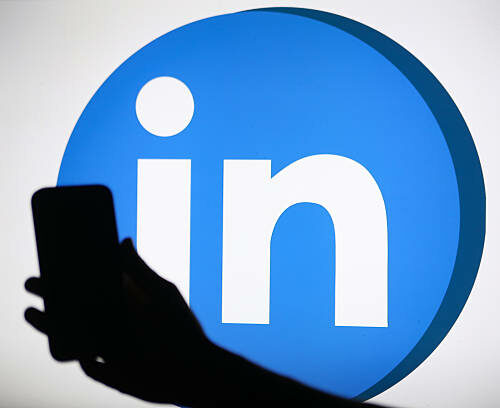
Being clever with your cash now, is better for you in the long run.
Belt-tightening means spending smarter, not depriving yourself of the things you enjoy. With the depreciating rand, as well as increasing interest and inflation rates, you need to be smart with your money. To ensure that you on the right path, we have a guideline for you .
Budget
The starting point for smart money management is budgeting properly. When was the last time you sat
down and looked at your expenses? Recording them on a spreadsheet can be an eye-opener, and gives you a much better grasp of your finances. Break your expenses down into fixed costs (bond, car finance payments and policies, which don’t change from month to month), regular but variable costs (electricity and water account, petrol or transport costs, cellphone bill and groceries) and luxuries (eating out, clothing, and grooming products). Do this for about four months to get a proper handle on variable costs and establish trends; you will be surprised at how easy it is to find ways to save money.
Consider fixed costs
Are there ways you can reduce your regular monthly payments? Could moving your bond to a different bank or policy give you a better rate or more favourable terms? Do you really need all the cover offered by your insurer, and are your policies in line with your needs right now? What about bank costs? Are you reaping the benefits of the type of account you use, or could a cheaper option be just as useful? Reducing the interest rate from 9.75% to 9.25% on your R750 000 home loan could save you R48 000 over the course of your loan period, in terms of the monthly repayment alone. At 9.75%, you pay around R957 000 in interest, but reducing your rate to 9.25% takes that cost to just under R900 000. You’d also be wise to put any additional cash you have into the loan, to pay it off faster while reducing the interest.
Pack a lunch
You know that coffee you can’t do without from your favourite coffee shop on your way to work? At R20 a takeaway cappuccino, it’s costing you about R400 a month, excluding tips or the temptation of the snack counter. For the same money, you could buy six bags of good-quality coffee beans and brew it yourself. And, you get a lot more than 20 cups per month! The same goes for the office canteen. While many companies offer healthy lunch options, the temptation is always there to indulge in a burger or a slice of cake. At a conservative R25 per lunch for a plate of food and the inevitable drink, you’regiving your employer R500 of your salary back every month – that’s R6 000 per year. Save this money by cooking your own lunch meals.
Grocery shopping
So, you’re buying your own coffee and packing lunch. That doesn’t mean you can treat yourself when you go to the supermarket. The average shopping basket in South Africa – containing 10 basic food items including fruit, veggies, milk, eggs, maize meal and bread – cost between R187 and R224 in August 2015. This depended on where you shopped. By February this year, that same basket cost between R214 and R240, and inflation and interest rates are going to drive prices up. The drought we experienced has also driven prices up dramatically. Retailers have turned to other markets to source products, in order to keep costs down. This means South Africans are now exposed to products that have travelled long distances, have been preserved, and may not be of the quality we’re used to. Never mind the effects on your pocket; you need to keep an eye on your long-term health, too.
Look for healthy snack options; they’re better than processed foods, and often cheaper. The price of cocoa has risen by more than 52% in the past 24 months, which has obvious effects on the cost of your favourite slab of chocolate, and therefore, your pocket. Eating healthy can be more expensive. But, in the long run, it’s also an investment in your health. If it helps you stay slim, you won’t be forced to spend money on new clothes as your waistline expands! Also, look for house brands and keep tabs on sales. You can make significant savings with a simple mindset change. Look at buying things, such as cleaning products and non-perishable foods, in bulk, to save money. A 1kg packet of rice can cost around R12.99, but a 5kg bag can cost R59.99. That is R1 per kilo, less. Apply that kind of saving across your basket and you’re looking at spending substantially less on groceries. You also won’t need to shop as often, saving both time and petrol.
Party smart
This does not mean that you don’t deserve a romantic dinner or a steam- releasing night of partying. But, a little planning can help you save money. When you go to a restaurant, choose your drinks wisely. Most restaurants put a mark-up of over 200% on alcohol. They also have costs to cover after all, but alcohol is an easy target for huge increases. Also, if you’re going to have more than one glass, rather buy the bottle. In most cases, the cost of two glasses matches what the restaurant charges for the bottle anyway. Nobody wants to look cheap, but you’re only hurting your pocket if you’re paying over the odds for something. If you and your friends want to go on a night out, don’t use your cars. Rather share a taxi and split the cost of the trip. Also, keep an eye out for specials and themed evenings – going to Ladies’ Night can save you money on the R100+ cover charge at the door before a certain time. Drink specials can be party-friendly too; just be wary of overdoing things. Set yourself a spending limit or take cash; leave your credit card at home. This ensures that you don’t wake up with a headache and shock the next morning.
Written by Trevor Crighton
Also see: Smart saving tips for economic recession
Follow BONA for more!




